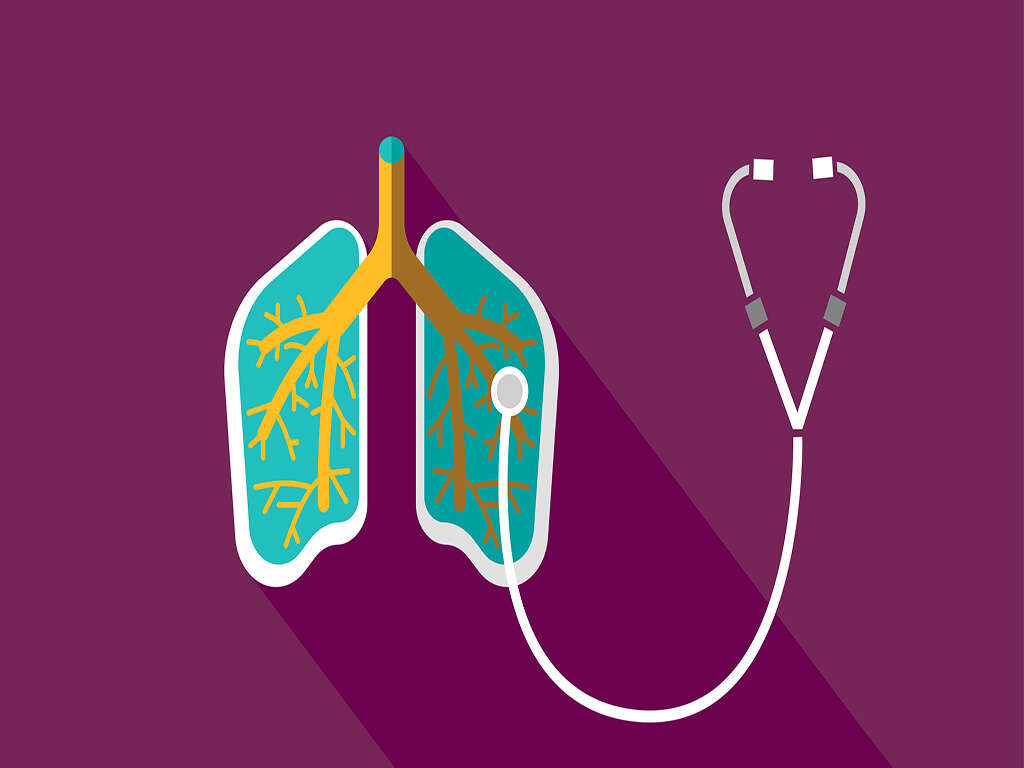10 Hypercapnia Symptoms
 Article Sources
Article Sources
- 1. Patel, Shivani. 'Physiology, Carbon Dioxide Retention.' StatPearls /[Internet/]., U.S. National Library of Medicine, 4 Jan. 2021, www.ncbi.nlm.nih.gov/books/NBK482456/
- 2. 'Fatigue Causes.' Mayo Clinic, Mayo Foundation for Medical Education and Research, 2 Dec. 2020, www.mayoclinic.org/symptoms/fatigue/basics/causes/sym-20050894
- 3. The Puzzle of Blushing. 'The Puzzle of Blushing'| The Psychologist, thepsychologist.bps.org.uk/volume-23/edition-5/puzzle-blushing
- 4. National Institute on Drug Abuse. 'Hallucinogens DrugFacts.' National Institute on Drug Abuse, 9 June 2021, www.drugabuse.gov/publications/drugfacts/hallucinogens
- 5. Muscle Spasms (Muscle Cramps): 'Causes, Pain Relief & Treatment.' Cleveland Clinic, my.clevelandclinic.org/health/diseases/15466-muscle-spasms
Hypercapnia occurs when someone has too much carbon dioxide in their bloodstream. Two common causes of hypercapnia are an inability to breathe properly and hyperventilation.1Patel, Shivani. ‘Physiology, Carbon Dioxide Retention.’ StatPearls /[Internet/]., U.S. National Library of Medicine, 4 Jan. 2021, www.ncbi.nlm.nih.gov/books/NBK482456/ Hypercapnia can develop due to complications with certain chronic lung diseases, such as COPD, emphysema and bronchiectasis.
If ignored, hypercapnia can lead to more serious conditions including acidosis, or too much acid in an individual's body fluids, which may result in respiratory failure and even death. Hypercapnia symptoms can range from mild to severe. Headaches, exhaustion and drowsiness are common among those with hypercapnia, while paranoia and panic attacks can sometimes develop in those experiencing more severe cases.
Headaches
Too much carbon dioxide in the body may result in affected individuals experiencing mild to severe headaches. The severity of the headaches depends on the level of the chemical compound in a person's body. There are over 150 types of headaches. Three common types are tension headaches, migraines and cluster headaches.
Tension headaches can range from mild to moderate on the pain scale, while the pain associated with migraines is sometimes described as a pounding or throbbing sensation. Cluster headaches can cause intense burning or piercing sensations behind one eye.
Drowsiness
Dropping off to sleep in front of the TV or while reading a book isn't unusual for someone who feels drowsy. Drowsiness is also one of several common hypercapnia symptoms. It can strike at the most inappropriate times, for example, dropping off to sleep in the middle of a conversation.
Lifestyle factors such as working long hours or working the night shift can contribute to drowsiness. In addition, mental states such as depression and medical conditions such as diabetes can also cause drowsiness.

Disorientation
High levels of carbon dioxide in the bloodstream can cause rapid breathing and confusion. Someone with hypercapnia may feel disorientated. A person in this altered mental state may not know where or who they are. They may have difficulty remembering dates and times.
Delirium and dementia are common causes of disorientation. Physical disorders such as amnesia and carbon monoxide poisoning are other possible causes of this state of mental confusion. Although disorientation itself isn't necessarily serious, the conditions that cause it may be life threatening.
Breathlessness
When carbon dioxide levels in the blood rise, the brain notifies the body that it's time to increase the breathing rate. When this happens, an individual may start to take in deeper and sharper breaths, resulting in a sense of breathlessness.
Many people describe the unpleasant sensation of breathlessness as a feeling of being winded. They may feel tightness in the chest and breathing can sometimes hurt. Medically known as dyspnea, shortness of breath can also result from medical conditions, such as asthma and bronchitis.

Fatigue
Fatigue is commonly the result of certain habits or routines. Lack of exercise, late nights, excessive alcohol or caffeine consumption and eating junk food are all possible causes.2‘Fatigue Causes.’ Mayo Clinic, Mayo Foundation for Medical Education and Research, 2 Dec. 2020, www.mayoclinic.org/symptoms/fatigue/basics/causes/sym-20050894 Occasionally, fatigue is a symptom of an underlying health condition such as hypercapnia.
A good night's sleep or a nap is unlikely to relieve fatigue. An individual with fatigue is more than simply tired. Their energy tank is running on empty, and even the everyday tasks such as personal grooming may become difficult.
Flushed Skin
Another common symptom of hypercapnia is flushed skin. More commonly known as blushing, affected individuals may experience a rapid reddening of particular areas of their bodies, such as the neck, chest or face. The flushing is due to an increase in blood flow.3The Puzzle of Blushing. ‘The Puzzle of Blushing’| The Psychologist, thepsychologist.bps.org.uk/volume-23/edition-5/puzzle-blushing
Other common causes of flushed skin are embarrassment, anxiety, stress and anger. It also may be linked to underlying medical issues, such as a niacin overdose, but it's commonly a social rather than a medical issue.

Panic Attacks
Panic attacks shouldn't be confused with anxiety attacks, as they're two different conditions. A panic attack can strike fear into a person in an instant. In addition, physical symptoms, such as a rapid heartbeat, can coincide with an attack.
Panic attacks usually occur for no apparent reason and are officially recognized as a mood disorder. When people say they experience anxiety attacks, they refer to symptoms similar to those of a panic attack, but there are identified trigger stressors, and it varies in intensity.
Anxiety
When an individual becomes stressed, it's not uncommon for anxiety to take hold. For example, the fear of starting a new job, the first day at school or having to make a speech are all scenarios that can bring on anxiety.
The symptoms may be short-lived, but when they last longer than six months, the person affected may have an anxiety disorder. Anxiety disorders can affect every aspect of someone's life. For instance, it can stop them from taking part in activities they love.

Paranoia
In more severe cases of hypercapnia, an affected person can experience paranoia. Individuals may lose trust in someone they've known for a long time. They can become overly suspicious with a feeling that the person is out to get them. Paranoia along with confusion and delirium are signs of acute hypercapnia that require treatment right away.
Personality disorders or mental illnesses, such as schizophrenia, and drug abuse are common causes of paranoia. PCP, LSD and methamphetamines can contribute to a person's paranoia and delusions.4National Institute on Drug Abuse. ‘Hallucinogens DrugFacts.’ National Institute on Drug Abuse, 9 June 2021, www.drugabuse.gov/publications/drugfacts/hallucinogens
Muscle Twitches
Some people with hypercapnia may experience muscle twitches. Also known as fasciculation, the twitching is a result of minor muscle contractions in the body. An individual may not even notice the twitches, and they're rarely anything to be concerned about.
Twitching may also occur after exercise due to lactic acid accumulation in the muscles.5Muscle Spasms (Muscle Cramps): ‘Causes, Pain Relief & Treatment.’ Cleveland Clinic, my.clevelandclinic.org/health/diseases/15466-muscle-spasms It commonly affects a person's arms, legs and back. Stress and anxiety are other lifestyle related causes. More serious causes can include muscular dystrophy, a group of inherited muscle-damaging diseases.









